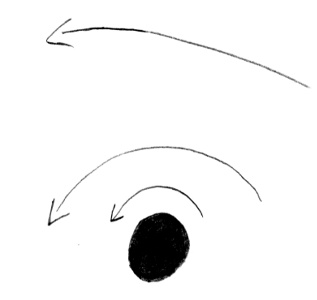Overcorrection

I've been thinking about overcorrection, when you try to fix something but go too far and end up in an extreme opposite position. For example, you want to stop eating so much, but instead of gently reducing your intake to a sustainable level, you go all out on some fasting diet. A system that overcorrects tends to oscillate, because after overcorrecting it overcorrects back in the other direction. For this reason, it's usually considered a bad thing.
But I think that, in people, overcorrection gets an unnecessarily bad rap. Yo-yo dieting or spontaneous bursts of exercise are overcorrections, sure, but the reason they don't work is mostly because the effort required to sustain them is too much. However, that doesn't have to be the case. You could end up in a position more extreme than you really want, but is still sustainable. For example, going cold turkey on drinking or deciding to run every day even though three times a week would be sufficient.
And in that sense, overcorrection can actually be beneficial. We're ultimately creatures of habit, association machines, and when doing something similar to our previous behaviour it essentially pits a strong association against a weak one. Going too far can pull you out of the sphere of influence of that old habit. Another way to put it is that our habits give us a lot of positive stability, which sometimes makes us undercorrect. To compensate for that, it can make sense to overcorrect.
In fact, I think that an aversion to overcorrection can be a dangerous thing. It might seem more reasonable to make incremental changes and avoid overshooting the mark, but it's very difficult to achieve slow progress against a background of a profoundly homeostatic system. Restricting yourself to incremental change might mean no change at all.